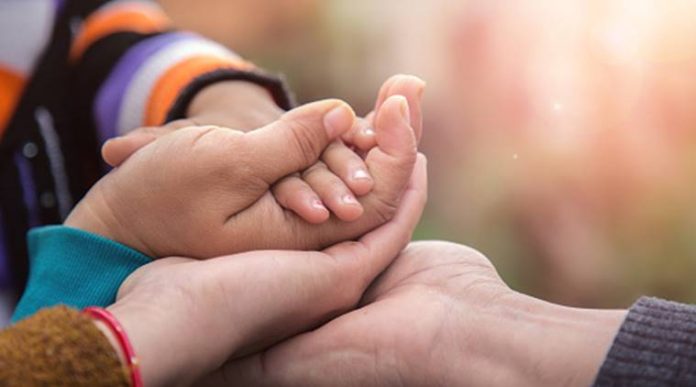This article is written by Nikita Arora, from Trinity Institute of Professional Studies. This article outlines the steps involved in adopting an orphan in India, as well as the various laws and authorities that regulate the procedure.
Table of Contents
Introduction
Adoption of children is becoming common in India alongside the world. The majority of adoptions take place because the parents are unable to have children of their own or because they want to nurture and give a fresh start to a child that has been abandoned in the world. Adoption, which was once considered taboo in India, is now considered and discussed openly in Indian society. Likewise, Sushmita Sen after winning the Miss Universe title in 1994, inspired millions of people and received the admiration of many when she adopted a baby girl at the age of 24. She adopted her first daughter in the year 2000 and her second daughter in 2010.
Adoption is the permanent legal transfer of all parental rights from one person or an institute to another or a couple. Adoptive parents have the same privileges as biological parents and adopted children have the same educational, legal, emotional, and kinship advantages.
Adoption in India
Since ancient times, India has practised and adapted adoption. The act of adoption has remained the same, even though the goal for which it is carried out has changed. Adoption was once thought to be a sacramental act.
Under Hindu law, many rules relating to adoption existed and they could only be justified if adoption was considered a sacramental act. In the context of submission the Hindu Adoption and Maintenance Act, 1956 has distinguished itself from all religious and sacramental aspects of adoption, making it a secular institution. All adoption after 1956 is secular and legal, and the validity of the act must be confirmed. Adoption is prohibited in Muslim, Christian, Parsi, and Jewish personal laws in India. They can opt for guardianship of a child under the Guardianship and Wards Act, 1890. As part of the Hindu Code Bills, India enacted the Hindu Adoption and Maintenance Act, 1956. It led to the implementation of a few changes that liberalized the adoption process.
Adoption rules in India
Section 57 of the Juvenile Justice (Care and Protection of Children) Act, 2015 and Section 5 of the Adoption Regulation Act, 2017 states the eligibility criteria of a person who can adopt an orphan in India.
For prospective adoptive parents
- The adoptive parents must be in good physical, mental, and emotional health, as well as financially capable and free of any life-threatening medical conditions.
- Any prospective adoptive parents, regardless of marital status or whether or not they have a biological son or daughter, can adopt a child if they meet the following criteria:
- In the case of a married couple, both partners must agree to the adoption;
- A single female can adopt a child of any gender;
- A single male cannot adopt a girl child.
- A couple cannot adopt a child until they have been married for at least two years and have a healthy marital relationship.
- The age of prospective adoptive parents as of the date of registration will be used to determine eligibility, and prospective adoptive parents’ eligibility to apply for children of various age groups will be as follows:
|
Age of the Child |
Maximum composite age of prospective adoptive parents |
|
Up to 4 years |
90 years |
|
Above 4 and up to 8 years |
100 years |
|
Above 8 and up to 8 years |
110 years |
- The prospective adoptive parents, combined age would be taken into account.
For single parents
The following are the adoption laws in India for single parents:
For Hindus
The Hindus Adoptions and Maintenance Act, 1956 protects Hindu adoptions which include Sikhs, Jains, and Buddhists. The Act allows for the following:
- Any Hindu man is eligible to adopt a child. He should not be minor and should be of sound mind. If he has a living wife at the time of adoption, he can only adapt with her permission, unless she has been deemed unfit by the court to give consent.
- A child may be adopted by a Hindu woman. She may be single. If her husband is deceased, her marriage has been dissolved by the judge, or her husband has been legally found unfit to adopt a child.
|
Age of the child |
Maximum age of a single prospective adoptive parent |
|
Up to 4 years |
45 years |
|
Above 4 and up to 8 years |
50 years |
|
Above 8 and up to 8 years |
55 years |
For Muslims
Muslims do not accept total adoption however, under Section 8 of the Guardians and Ward Act, 1890, they are permitted to take on the guardianship of a minor. The guardian job comes with a collection of rules designed to protect and not confuse the biological family line. On the other hand, Muslims will adopt under the Juvenile Justice (Care and Protection of children) Act, 2000. Any Indian citizen regardless of religion is allowed to adopt a child under secular law.
For Christians and Parsis
Christians and Parsis also do not accept total adoption. In case they want to adopt a child they should go to the courts to get legal approval under the Guardians and Wards Act, 1890. The Act allows them to place a child in their care. When a child reaches the age of 18 he or she is free to break all connections and walk away. According to Christian Laws, he or she still has no legitimate right to inherit. On the other hand, Christians and Parsis will adopt a child under the secular Juvenile Justice Act, which suspends personal laws.
For single male and female
The Central Adoption Resources Agency (CARA) guidelines released by the Ministry of Women and Child Development in 2015 allow a single woman to adopt a child of either gender. The Juvenile Justice Act prohibits a single male from adopting a female child.
In India, the minimum age for single mother adoption has been lowered from 30 to 25. A single male adopting a child must be at least 25 years old. Adopting a child between the ages of 5 and 8 is possible for single males and females between the ages of 50.
Procedure to adopt a child in India
The Central Adoption Resources Authority (CARA) oversees compliance with multiple laws that regulate the adoption process in India. In India, the process for adoption of a child can be understood in the following steps:
Step-1 Registration
Prospective adoptive parents must register with a reputable organization. The agencies that are required to make such registrations in India are Recognised Indian Placement Agencies (RIPA) and Special Adoption Agencies (SPA). The prospective adoptive parents should go to their local Adoption Coordination Agency, where a social worker can clarify the procedure and walk them through the necessary formalities, documentation, and general planning.
Step-2 Home study and counselling
A home study will be conducted by a social worker from the registration agency at the home of the prospective adoptive parent. The organization will also require the parents to attend counseling sessions to gain a better understanding of the prospective parents’ motivation, readiness, abilities, and weaknesses. The home analysis must be done within three months of registration, according to CARA regulations.
The results of the home analysis and counseling sessions are then presented to the judge.
Step-3 Referral of the child
When a child is ready for adoption, the organization will notify the interested couple. The organization will exchange medical records, physical examination reports, and other pertinent information with the couple, as well as allowing them to spend time with the child until they are satisfied with the information provided.
Step-4 Acceptance of the child
Parents must sign a few papers relating to the child’s acceptance until they are comfortable with the child.
Step-5 Filing a petition
The necessary documents are given to a lawyer, who prepares a petition to be presented to the court. Once the petition is complete, the adoptive parents must appear in court and sign the petition in front of a judge.
Step-6 Pre-Adoption foster care
After signing the petition in court, the adoptive parents will take the child to a pre-adoption foster care center to learn about the child’s routines from the nursing staff before bringing the child home.
Step-7 Court hearing
Along with the child, the parents must attend a court hearing. The trial takes place in a locked space in front of a judge. The judge will ask a few questions and state the sum that must be invested in the child’s name.
Step-8 Court order
The judge will issue adoption orders until the receipt of the investment is shown.
Step- 9 Follow up
Following the adoption, the agency must provide the court with follow-up reports on the child’s well-being. This could go on for another 1-2 years.
Documents required for adoption
- Photograph of the couple or person adopting a child (current family photo/photo of the couple or person adopting a child).
- The prospective adoptive parents’ PAN card.
- The prospective adoptive parents’ birth certificate or proof of date of birth.
- Proof of address (Aadhar card, voting card, passport, current electricity bill, current telephone bill).
- Proof of last year’s taxes (salary slip/government-issued income certificate/income tax return).
- A medical certificate stating that the prospective adoptive parents are free of any chronic, contagious, or fatal diseases and that they are fit to adopt (In case of the married couple, upload Medical Certificate of both the applicants).
- Certificate of Marriage.
- Divorce Decree/Declaration from the competent court or affidavit on oath pertaining to divorce if divorce is regulated by personal law and a decree of divorce is not required/Death certificate of spouse if the single prospective adoptive parent (if applicable).
- Two letters of approval for adoption from friends or family.
- Consent of the adoptive family’s older child/children (if more than 5 years)
Conclusion
Hence, adoption is done for a variety of reasons, and the process will go in a variety of directions once it starts. From the moment the child joins the family until the family system dissolves with time and age, there will be problems that need to be discussed and worked on just as there will be issues with any family situation. However, Adoptive families and children will make it through the lengthy process with education, hard work, and a strong desire to become the family they have always wanted. Even now, a few improvements may be made to make all adoption laws a bit more consistent.
References
- https://www.vidhikarya.com/legal-blog/child-adoption-law-in-india-a-step-by-step-guide
- http://cara.nic.in/Parents/eg_ri.html
- https://indianexpress.com/article/parenting/family/child-adoption-cara-india-girl-all-you-need-to-know-6153189/
- http://cara.nic.in/Parents/document_RI.html
https://t.me/joinchat/J_0YrBa4IBSHdpuTfQO_sA
Follow us on Instagram and subscribe to our YouTube channel for more amazing legal content.
 Serato DJ Crack 2025Serato DJ PRO Crack
Serato DJ Crack 2025Serato DJ PRO Crack











 Allow notifications
Allow notifications


